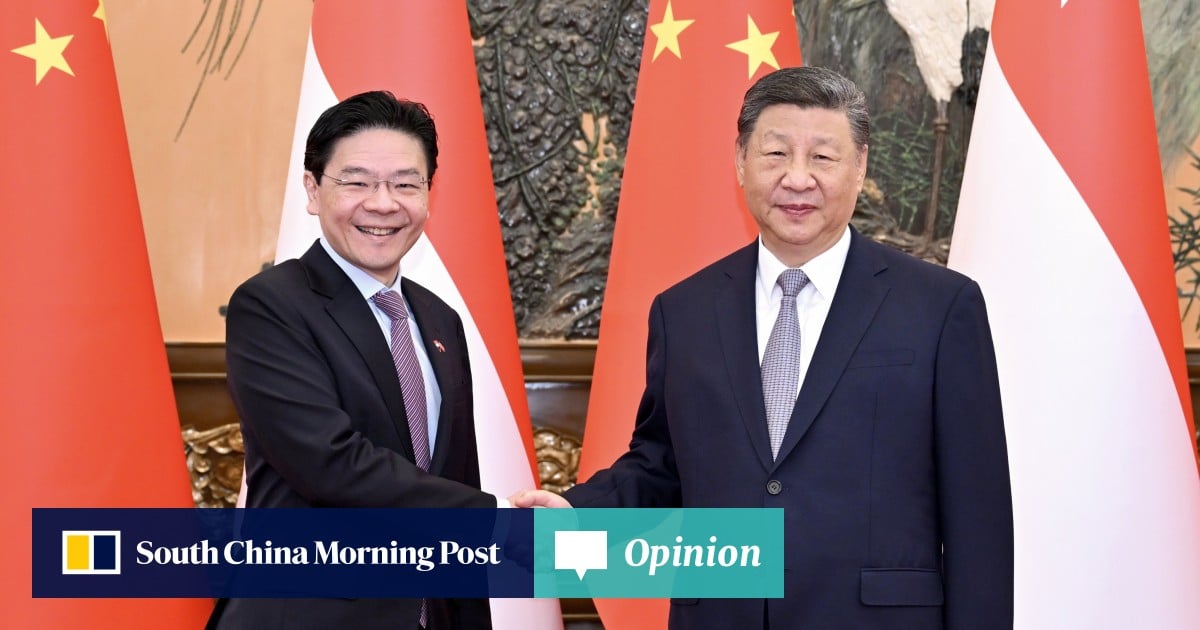As a nation, China sees itself as a rational, peaceful and stabilising force in an increasingly dangerous and fragmented global order.
While such national characteristics may be relative and are mostly in the eyes of the beholder, they seem to be less debatable when compared with the erratic and unpredictable actions and policy flip-flops coming out of the White House of Donald Trump.
In his first official visit last week, Singaporean Prime Minister Lawrence Wong was given the same message Xi Jinping has been sending to other Southeast Asian leaders during the latter’s tour of the region earlier this year.
Singapore and China together need to “stand on the right side of history”, Xi says, and push for an equitable multipolar world against “unilateral bullying” and “tariff abuse”.
That was obviously a reference to the Trump administration’s “reciprocal tariffs”, which have especially irked Singapore because of its trade deficit with the United States. In April, Wong criticised the US tariffs as “not actions one does to a friend”, so Xi’s message was calibrated to appeal to the Singaporean sense of unfairness.
It’s often been claimed that, unlike the transatlanticism of Nato and the democratic governance of the European Union, Asean countries that collectively account for most of the economic activities of Southeast Asia lack a cohesive ideology. But despite their differences in government, culture and language, they do share some strong beliefs; that is, in growth, prosperity, pragmatism and peaceful coexistence over sabre-rattling. These are the same values to which China has long been committed.
Also, it’s long been debated whether Asean countries such as Singapore will end up having to choose between China and the US in their increasingly bitter rivalry. Asean’s common response has been that they can be friends with everyone.


